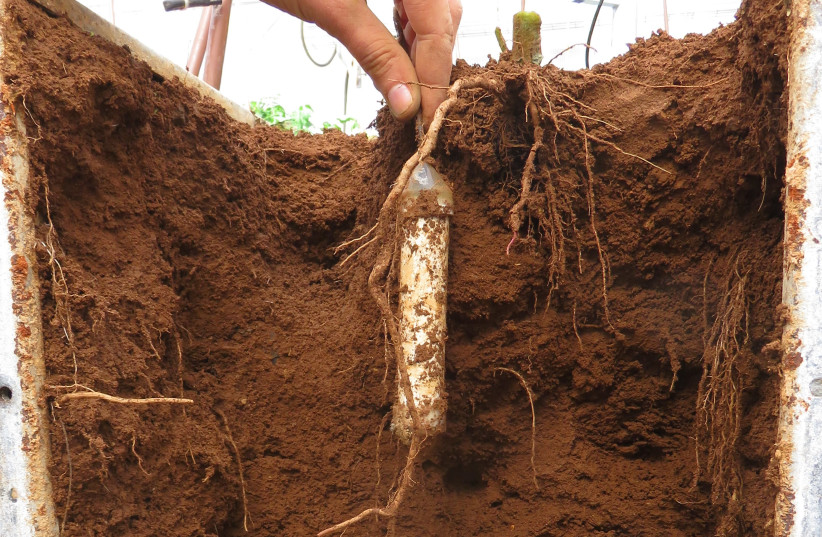New invention tracks water pollution in real time
Published on by Water Network Research, Official research team of The Water Network in Technology
The sensor tracks nitrate levels in crops, thereby notifying authorities quickly to potential groundwater nitrate pollution, to help prevent poisoning of groundwater.
Sensor for measurements of nitrate in the soil (photo credit: Courtesy)
Researchers at BGN Technologies, the Beersheba-based technology transfer company of Ben-Gurion University of the Negev (BGU), introduced a technology on Monday enabling farmers to receive direct, real-time and continuous measurement of soil nitrate levels, thereby optimizing crop fertilization while helping significantly to prevent potential groundwater poisoning.The natural nitrate level in groundwater is generally low. However, too much fertilizer may result in the leaching of nitrates from the soil into the water table. A high nitrate level makes water unpotable.
The invention, developed by Prof. Ofer Dahan of the Zuckerberg Institute for Water Research (ZIWR); Prof. Shlomi Arnon of the department of electrical and computer engineering; and Elad Yeshno, a PhD student at ZIWR, relies on an optical nitrate sensor that is based on absorption spectroscopy.The technology is resistant to harsh chemical and physical soil conditions, therefore enabling continuous, real-time measurement of soil nitrate levels.“Current methods for measuring soil nitrate are cumbersome, labor-intensive and do not provide real-time indication on the actual concentration of nutrients in the soil,” said Dahan.“Our invention can supply farmers with valuable data on the amount nutrient availability for the crops,” Arnon added. “Our solution enables the optimization of fertilizers application, thus preventing over-fertilization, as well as economizing irrigation and reducing water source pollution.”
Media
Taxonomy
- Groundwater Assessment
- Groundwater Pollution
- Groundwater Mapping
- Nitrogen
- Groundwater monitoring and assessments
